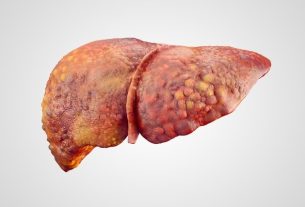Edemigenic syndrome is a condition caused by the retention of excess fluid in the body and which can be accompanied by symptoms and signs such as swelling in the lower limbs or belly, tiredness, changes in blood pressure and palpitations.
Edemigenic syndrome may indicate problems with the kidneys, heart or liver, such as kidney failure, liver cirrhosis, heart failure or poor circulation, for example.
In the presence of signs or symptoms that indicate edemigenic syndrome, it is advisable to consult a general practitioner, nephrologist or cardiologist, to carry out a complete evaluation and indicate appropriate treatment, which may include the use of antihypertensive and diuretic medications, such as furosemide and spironolactone. Discover other diuretic remedies.

Main symptoms
The symptoms of edemigenic syndrome vary depending on the cause of this condition and may include:
- Swelling in the face, lower limbs and/or belly;
- Increase in body weight;
- Change in blood pressure;
- Frequent tiredness;
- Palpitations;
- Itching on the body.
In addition, other symptoms such as malaise, mental confusion, foamy or dark urine, feeling short of breath, chest pain, nausea and loss of appetite may also be present in edemigenic syndrome.
How the diagnosis is made
The diagnosis of edemigenic syndrome is made by a general practitioner, cardiologist or nephrologist, through evaluation of the signs and symptoms presented, and the person’s health history.
If you want to see a specialist, make an appointment with the general practitioner closest to you:
Taking care of your health has never been easier!
To confirm the diagnosis, the doctor may also order blood tests to check clotting time, sodium levels, albumin potassium, urea and creatinine; urine analysis; ultrasound of the abdomen; and echocardiogram.
Possible causes
Edemigenic syndrome can be caused by poor functioning of the kidneys, heart or liver:
- Changes in the kidneys, such as nephrotic syndrome, nephritic syndrome or renal failure;
- Heart problems, such as heart failure;
- Liver diseases, such as liver cirrhosis, liver failure or liver cancer.
Furthermore, edemigenic syndrome can also be caused by severe allergic reactions to foods or medications.
What is the treatment like?
The treatment of edemigenic syndrome must be carried out by a doctor and varies depending on the cause of this condition, and may include the use of diuretics, antihypertensive drugs, hemodialysis or organ transplantation.
1. Diuretics
Your doctor may prescribe diuretics, such as furosemide, hydrochlorothiazide, and spironolactone, to help control blood pressure and reduce swelling in cases of edemigenic syndrome caused by heart or kidney problems. Check out other diuretic remedies.
2. Antihypertensives
Antihypertensives are recommended by your doctor to control high blood pressure in cases of heart or kidney failure. Some antihypertensives that may be indicated are enalapril, benazepril and captopril. See more remedies recommended for high blood pressure.
3. Hemodialysis
In severe kidney failure or heart failure, the doctor may also recommend hemodialysis, a procedure that aims to filter the blood to remove excess toxins, mineral salts and liquids, and is indicated when the kidneys are not working well. Understand better about hemodialysis.
4. Organ transplant
In cases where problems with the heart, kidneys or liver are serious, stop functioning and do not respond to conventional treatments, the doctor may recommend organ transplantation.
Bibliography
- TREASURE ISLAND (FL): STATPEARLS PUBLISHING. Liver Transplantation. Available at: <https://www.ncbi.nlm.nih.gov/books/NBK559161/>. Accessed on Aug 22, 2023
- REASURE ISLAND (FL): STATPEARLS PUBLISHING. Acute Liver Failure. Available at: <https://www.ncbi.nlm.nih.gov/books/NBK482374/>. Accessed on Aug 22, 2023
- TREASURE ISLAND (FL): STATPEARLS PUBLISHING. Nephrotic Syndrome. Available at: <https://www.ncbi.nlm.nih.gov/books/NBK470444/>. Accessed on Aug 22, 2023
- BRAZILIAN SOCIETY OF NEPHROLOGY. Hemodialysis. Available at: <https://www.sbn.org.br/orientacoes-e-tratamentos/tratamentos/hemodialise/>. Accessed on Aug 22, 2023
- TREASURE ISLAND (FL): STATPEARLS PUBLISHING. Heart Transplantation Patient Selection. Available at: <https://www.ncbi.nlm.nih.gov/books/NBK537090/>. Accessed on Aug 22, 2023
- TREASURE ISLAND (FL): STATPEARLS PUBLISHING. Kidney Transplantation. Available at: <https://www.ncbi.nlm.nih.gov/books/NBK567755/>. Accessed on Aug 22, 2023
- DOCTORS’ UNION OF PARÁ. Word from a Doctor – Edemigenic Syndrome. Available at: <https://sindmepa.org.br/2022/12/palavra-de-medico-sindrome-edemigenica/?unapproved=10881&moderation-hash=8904684fa36a6df29a16eecc1c0dd042#comment-10881>. Accessed on Aug 22, 2023
- TREASURE ISLAND (FL): STATPEARLS PUBLISHING. Physiology, Edema. Available at: <https://www.ncbi.nlm.nih.gov/books/NBK537065/#article-20895.s10>. Accessed on Aug 22, 2023
- STATPTREASURE ISLAND (FL): STATPEARLS PUBLISHINGEARLS. Anasarca. Available at: <https://www.ncbi.nlm.nih.gov/books/NBK519013/>. Accessed on Aug 22, 2023
- TREASURE ISLAND (FL): STATPEARLS PUBLISHING. Renal Failure. Available at: <https://www.ncbi.nlm.nih.gov/books/NBK519012/>. Accessed on Aug 22, 2023
- CLEVELAND CLINIC. Congestive Heart Failure. Disponível em: <https://my.clevelandclinic.org/health/diseases/17069-heart-failure-understanding-heart-failure#:~:text=Congestive%20heart%20failure%20is%20a,help%20manage%20symptoms%20like%20swelling.>. Acesso em 22 ago 2023

Sign up for our newsletter and stay up to date with exclusive news
that can transform your routine!
Warning: Undefined array key "title" in /home/storelat/public_html/wp-content/plugins/link-whisper-premium/templates/frontend/related-posts.php on line 12
Warning: Undefined array key "title_tag" in /home/storelat/public_html/wp-content/plugins/link-whisper-premium/templates/frontend/related-posts.php on line 13



